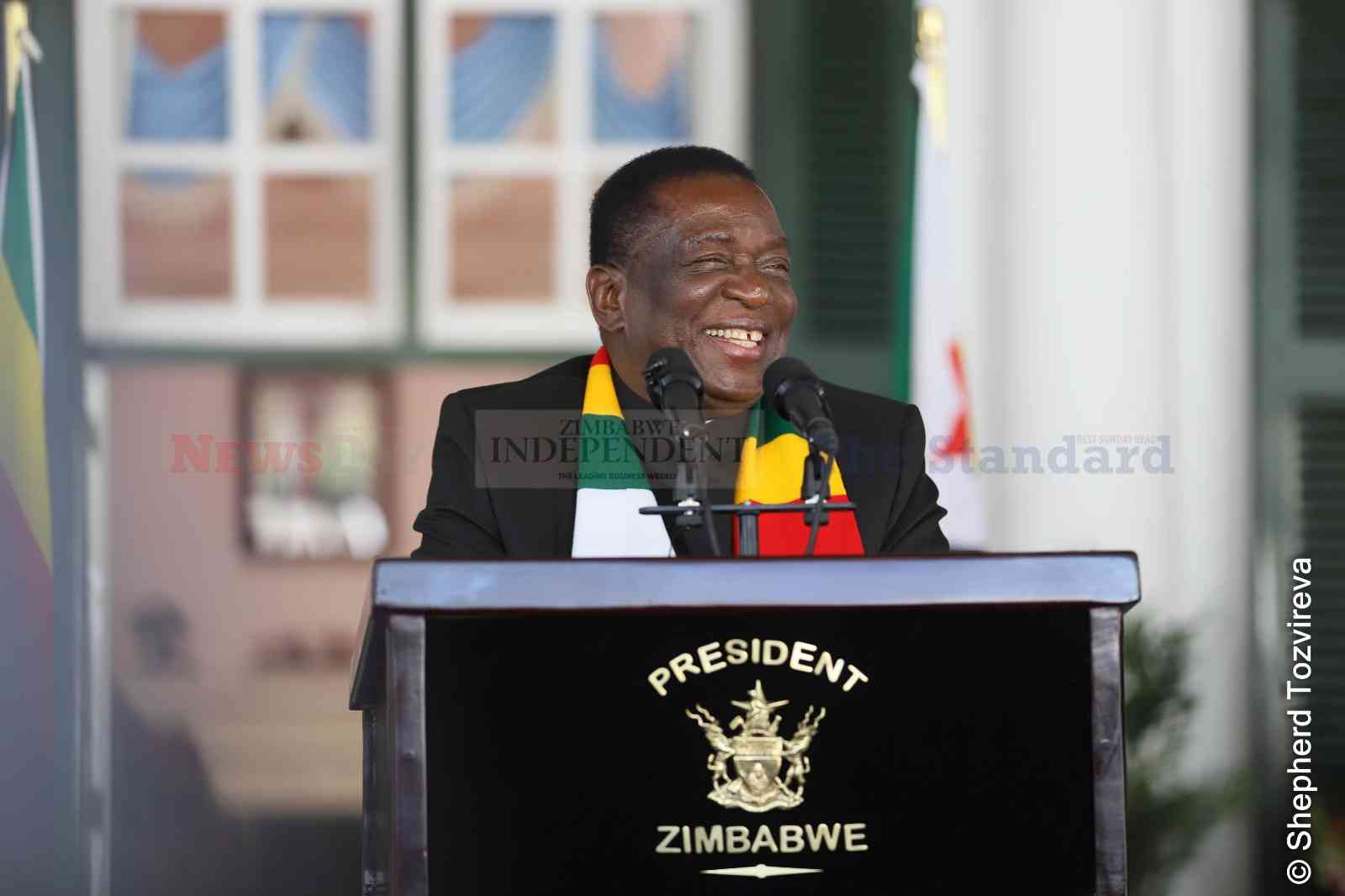
PRESIDENT Emmerson Mnangagwa on Wednesday extended the begging bowl to raise over US$2 billion to avert starvation in Zimbabwe after declaring the El Niño-induced drought a state of disaster.
The SOS comes after Zimbabwe appeared to be throwing money like confetti pampering ministers, judges, lawmakers and chiefs.
“Preliminary assessments show that Zimbabwe requires in excess of US$2 billion towards various interventions we envisage in the spectrum of our national response,” Mnangagwa said.
Zimbabwe faces a tough hurdle to mobilise resources from donor agencies and development partners with two sister countries in the region — Zambia and Malawi — having declared a state of disaster putting pressure on the cake that is getting smaller due to global challenges.

In a statement declaring the state of disaster yesterday, Mnangagwa said 80% of Zimbabwe received below normal rainfall.
He said the country had put 1 728 897 hectares under maize crop and other cereals during the 2023/24 agricultural season.
According to the Zimbabwe Livelihoods Assessment Committee Report for 2023, approximately 2,7 million people are expected to be food insecure from April 2023 until the end of March this year.
In declaring the state of disaster, Mnangagwa extended a begging bowl to Zimbabweans of goodwill, including those in the diaspora, the international community, United Nations agencies, development and humanitarian partners and international financial institutions.
- NoViolet Bulawayo’s new novel is an instant Zimbabwean classic
- Jah Prayzah, Zanu PF rekindles ‘lost love’
- Letter from America: The death of the Zimbabwe dollar shows the King has no clothes
- Bank workers appeal to Ncube for tax relief
Keep Reading
He urged the private sector, churches and other faith-based organisations and individuals to donate towards alleviating the national disaster.
Mnangagwa’s statement comes after Zambia and Malawi made similar declarations with Malawian President Lazarus Chakwera indicating that his country needs US$200 million to ensure food security.
Mnangagwa said: “We are ordinarily a nation capable of feeding ourselves. The strategic grain reserve holds 189 505 metric tonnes of cereals. This constitutes 145 604 metric tonnes of maize and 43 964 metric tonnes of traditional grains.”
He said government had allocated 138 905 tonnes of surplus wheat towards the strategic grain reserve.
“This will give a combined total of about 356 000 metric tonnes of cereals in our strategic grain reserve,” Mnangagwa said.
He said Zimbabwe was expecting 868 273 tonnes of grains from the 2023/24 agricultural season with a food cereal deficit of nearly 680 000 metric tonnes of grains.
Zimbabwe requires at least 2,2 million metric tonnes of grains annually to ensure food security.

The deficit, Mnangagwa said, would be bridged by imports, adding that the government had put in place measures to encourage private sector participation.
“Top on our priorities is securing food for all Zimbabweans. No Zimbabwean must succumb to or die from hunger. Adequate resources will, therefore, be mobilised and re-directed towards national food security, including through supplementary grain imports.
“All available grain in the country will be secured through competitive prices and payment towards encouraging farmers to release and sell available grain, including to the Grain Marketing Board. A robust and responsive mechanism has been put in place to guarantee that food reaches needy communities timely,” Mnangagwa said.
His appeal comes after the government, which was being warned of the impending drought since last year, had been claiming that it has enough grain to last for the next 10 months despite revelations that the national silos were almost empty.
The President said the agriculture mechanisation and modernisation programme would continue until most of small-holder farmers upgrade their operations.
He said the government would also prioritise the provision of adequate drinking water to people, livestock and wildlife, adding that food security was linked with water security at household, community and national levels.
Safe water sources which are drying up in many areas must be replaced through an accelerated exploitation of ground water, Mnangagwa said.
“More boreholes continue to be drilled under the Presidential Borehole Drilling Programme to ensure adequate water, sanitation and hygiene, to avert water-borne diseases, including cholera, typhoid and dysentery.”
Zimbabwe is battling a cholera outbreak which has spread throughout the country with experts warning of a surge in the new cases in the absence of water.
Mnangagwa said priority would also be given to saving livestock.
Farmers will be supported to prevent deaths or distress sales of livestock, he said.
Zimbabwe has lost over 9 000 cattle to drought with over 1,4 million reported to be at high risk due to lack of pastures and water, according to USAid’s food security arm.
The current El Nino-induced drought saw Zimbabwe and other southern African countries suffering a record dryness and high temperatures in February resulting in severe moisture stress, reduced harvest potential and crop failure.
It is also anticipated that Zimbabwe will have significantly below average harvests across the country negatively impact food access and crop sales.











